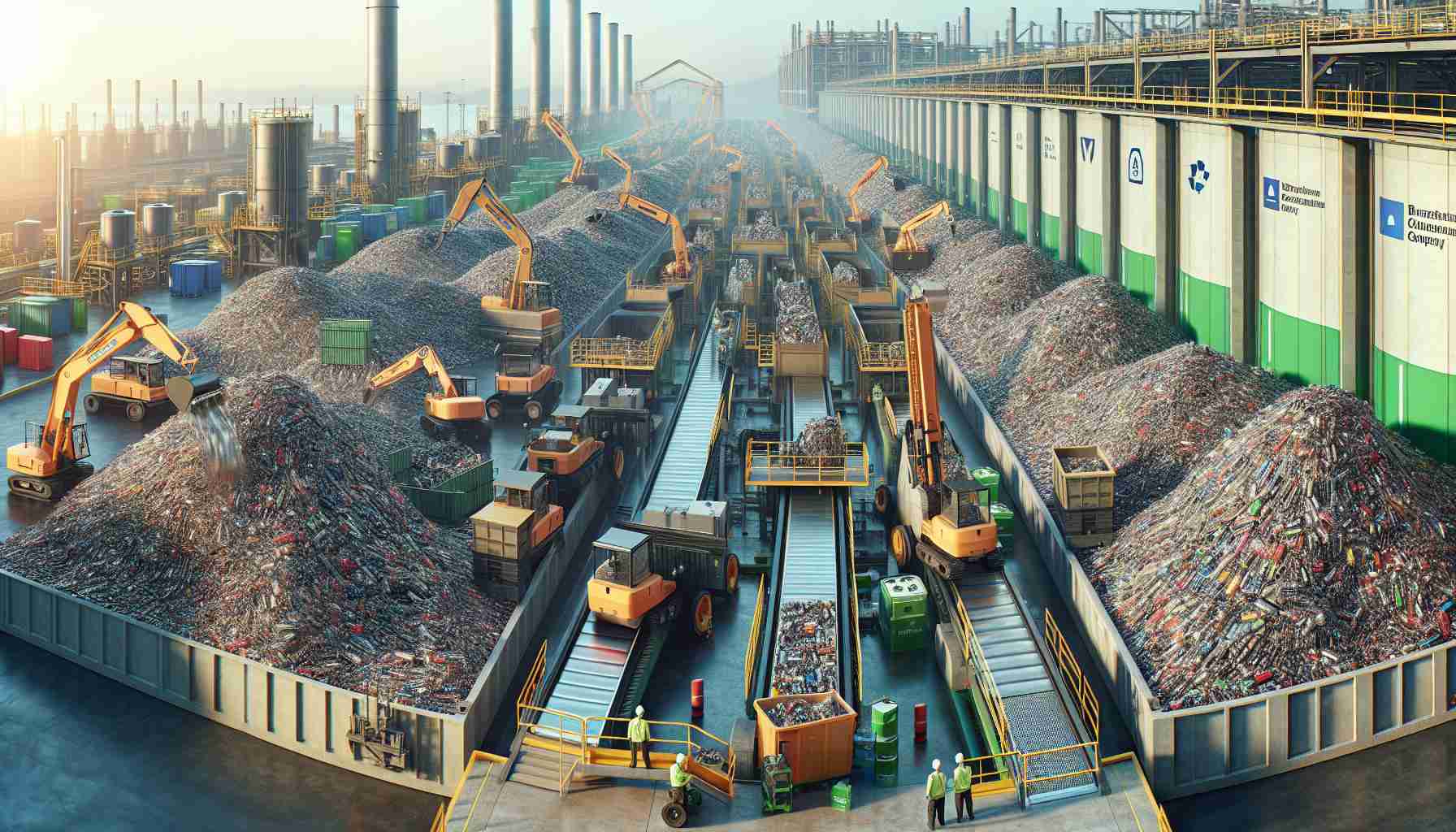BASF, a battery material manufacturer, and Stena Recycling, one of the leading European recycling companies, have signed an agreement regarding the purchase of black mass. This agreement is part of a wider collaboration that BASF and Stena Recycling plan to establish in order to create a value chain for battery recycling in the European electric vehicle market.
The main objective of this collaboration will be to develop and improve the black mass production processes to achieve high metal recovery rates, such as lithium, nickel, and cobalt, which will support closed-loop solutions for the European electric vehicle battery market. The collection, evaluation, and initial processing of used lithium-ion batteries, followed by the production of black mass, are the first steps in the battery recycling process. Black mass is obtained through mechanical processing of used lithium-ion batteries and battery production waste. In the second stage, valuable metals such as lithium, nickel, cobalt, and manganese can be chemically recovered from the black mass. After the collection of used lithium-ion batteries and battery production waste by Stena Recycling in Halmstad, the black mass will be further processed in BASF’s prototype metal refinery in Schwarzheide. Stena Recycling and BASF aim to transfer this model to BASF’s planned commercial-scale battery metal recycling refinery in Europe.
“The electrification of society is just beginning, and we want to support a circular approach to battery production. Cooperation between industrial players will be crucial for a successful transformation towards green technologies. With this agreement, Stena Recycling gains an even stronger position as one of the leading partners in recycling in Europe, both for battery manufacturers and the automotive industry,” said Marcus Martinsson, Head of Battery Products at Stena Recycling Group.
The use of recovered metals in the production of new batteries significantly reduces the carbon footprint of the batteries. Battery manufacturers and electric vehicle producers in Europe will be able to benefit from various services. Under this collaboration, Stena Recycling will be responsible for collecting used lithium-ion batteries and battery production waste, dismantling and emptying them, as well as producing black mass. BASF will recover valuable metals from the black mass and be able to produce new active cathode materials for new lithium-ion batteries.
FAQ Section based on the main topics and information presented in the article:
1. What are black masses?
Black masses are materials obtained through mechanical processing of used lithium-ion batteries and battery production waste.
2. What is the main goal of the collaboration between BASF and Stena Recycling?
The main goal of the collaboration is to develop and improve the black mass production processes to achieve high metal recovery rates, such as lithium, nickel, and cobalt, which will support closed-loop solutions for the European electric vehicle battery market.
3. What are the benefits of using recovered metals in the production of new batteries?
The use of recovered metals significantly reduces the carbon footprint of batteries, contributing to a more sustainable production of batteries and electric vehicles.
4. What services does Stena Recycling provide under this collaboration?
Stena Recycling is responsible for collecting used lithium-ion batteries and battery production waste, dismantling and emptying them, and producing black mass.
5. What does BASF do as part of this collaboration?
BASF recovers valuable metals from the black mass and is able to produce new active cathode materials for new lithium-ion batteries.
Suggested Related Links:
BASF
Stena Recycling
The source of the article is from the blog tvbzorg.com
